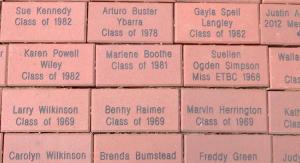East Texas Baptist University uses Handshake as its official resume and job posting service. Students and Alumni, create your account profile to:
- Search for all full-time and part-time job opportunities easily and effectively
- Create and upload your resume and career portfolio to make available to employers
- Access career advice documents, podcasts, videos, and articles
On Campus Jobs
Students who have registered for classes can access the page below to view the available jobs and complete an online application for the job(s) of interest. If a student has not yet registered for class, they will be unable to view current job opportunities.
Hire ETBU Tips
- Pray for direction and discernment in how God intends to use you and your education to pursue your career goals.
- Follow @ETBUCareers on Twitter for job opportunities.
- Build your resume/portfolio, review job opportunities, and view interview questions on the ETBU Handshake Job Portal site.
- Research and initiate contact with people that are in your possible career choice field.
- Plan to attend the ETBU Career Fair offered each spring on campus to visit with possible employers to set possible interviews and make contacts.
- Join organizations or volunteer in areas that can help you explore your career interests (i.e., If interested in a career in teaching, volunteer at area schools, become involved in local PTA organizations, tutor K-12 students, etc.) .
-
Contact your Academic Advisor, the Dean of the appropriate school (i.e., Teague School of Nursing, School of Education, etc.), the Office of Academic Success, and/or the Assistant VP for Student Engagement for assistance with with any career development or job search-related questions you may have.
- Interviewing Tips
-
You have done your homework, you know what you have to offer a prospective employer and you are dressed appropriately. Now, you are about to experience the most important 30-90 minutes of this complex, time-consuming and frequently exhausting process known as “landing a job.”
Networking, telephoning and correspondence help you get an interview, but it is the interview that lands you the job. Keep that in mind as you prepare.
When You are Speaking
- Talk only about your skills and achievements that relate to the job in question.
- Respond directly to questions, but limit your answers to what was asked. If you do not understand a question, ask for clarification.
- Do not say anything negative about former employers or instructors.
- Reiterate your interest in the job at the end of the interview.
The Power of Knowledge and Research
- Do research before the interview. Visit the company or organization’s website, read recent articles and look at marketing materials.
- Review typical interview questions beforehand to help you feel more relaxed during the interview.
- Ask questions. Learn from the employer what you can expect from the job.
- Ask about the next step in the job application process and when you can expect to be contacted again.
A Sensitive Area: Salary
- Do not mention salary unless the interviewer talks about it.
- If asked about your salary history, ask what range the employer is considering for the position.
- Do salary research before the interview so that you can be knowledgeable about typical salaries for similar jobs in your area.
Be Professional
- Show up no fewer than five minutes before your scheduled interview time.
- Dress appropriately. It is better to be too formal than to be too casual.
- Offer a firm handshake, sit up straight, speak clearly and make eye contact.
Follow-Up
- Put a thank you note in the mail as soon as you finish the interview.
- If you do not hear from the company or organization in the expected time, wait a few more days, then call to check in and reiterate your continued interest.
- Researching Occupations
-
Find detailed information on required skills and education, work environment, salary,
hiring outlook, and insider info on what that career is really all about.Career One Stop features occupational profiles of almost 900 careers with a great selection of video profiles.
O*Net Online is sponsored by the U.S. Department of Labor and has the largest database of occupations available.
Occupational Outlook Handbook from the Bureau of Labor Statistics. This includes the most extensive career data and a good choice if you are looking to compare one occupation directly with another.
What Can I Do With This Major is a way to learn about typical career areas and types of employers that hire people with each major, as well as strategies to make you a more marketable candidate. Continue your research through the websites provided.





























































